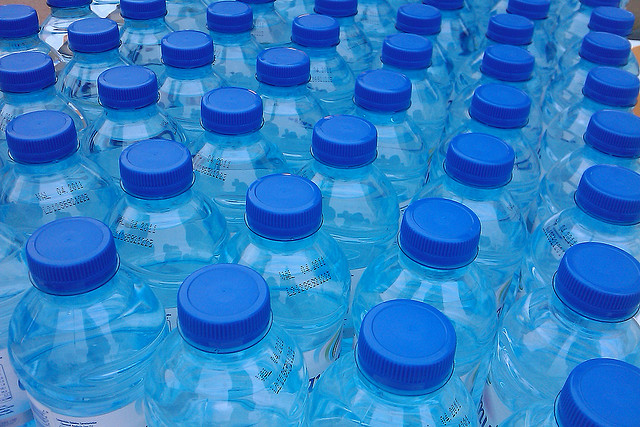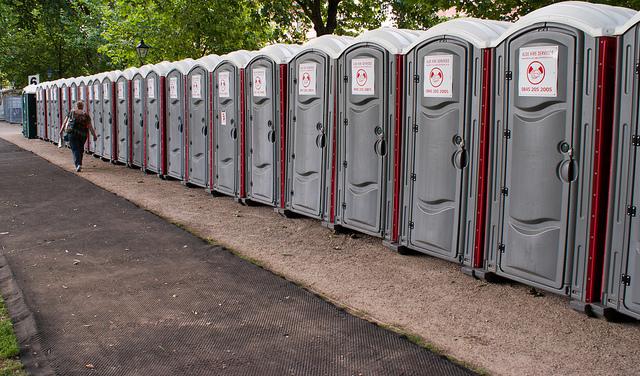Yeah, we know that charity is a good thing and running a marathon, whether it is for personal glory or for a great cause, is an admirable achievement. Anybody that can run for 26.2 miles has my respect, and anyone that does it dressed as the Incredible Hulk or in some excruciatingly uncomfortable Rhino costume is not only a superb human being but also a bit mad and a bit special to boot.
So since we are on the verge of the London marathon, and our Facebook and Twitter feeds are filled with stories of people demanding sponsorship and/or discussing how they intend to smash their PB in their 20th race, we decided to help out those amongst us (like me) who just canִ muster whatֳ needed to run a marathon Рand youֲe in luck, science is more-or-less on our side!
1: Youֶe just not put the effort in
All American Cross Country champion, Jeff Gaudette, writes that runners should be aiming to have at least 40 miles a week under their belts for around 6 weeks if they want to have any chance of their marathon effort ending in anything but collapse from exhaustion. So if you canִ manage that, stay in bed!
2: You canִ be bothered to put the effort in
If reason number one has your name written all over it, try putting things into perspective. If you havenִ completed your training because you just couldnִ be bothered to put the time in forget about rocking up to that start line. Stick to a 10k and leave the real running to the big boys and girls.

3: Welcome to the end of your social life
Marathon training is a huge commitment. If you are expected to run an average of 40 miles a week, in-between work and home life, the chances are that you are going to have very little time for any of those usual social engagements Рparticularly those ones that involve burgers and curry and beer! If you canִ sacrifice the զunՠthings in life, forget about running a marathon.
4: In all honesty you despise running
People tend to stick to fitness activities that match their personalities, so if you arenִ a fan of running anyway, itֳ probably best to give a marathon a wide berth Рforcing yourself into competing in a race of a marathonֳ magnitude is never going to be a good idea Рso find something else to do instead (thatֳ snooker, if youֲe anything like me).
5: Marathons arenִ cheap to enter
The registration fee for the London marathon is normally around õ0-ñ00, and some charities expect a minimum of ò,000 to be raised for their individual causes. The money from registration goes towards entertainment for the crowds and security; which in London is always going to be expensive, so unless youֲe willing to cough up, cry off.
6: Thereֳ a chance it will destroy your immune system
Having a regular workout routine is normally a sure-fire way of keeping any colds or viruses at bay, but putting in too many hours can actually have completely the opposite effect. As with most things moderation is the key Рresearch has suggested that following huge physical exertions like running a marathon our immune systems are running on empty for at least two to three weeks after the race; a fact that increases our chance of infection enormously. So if you donִ want the lurgy, stay at home.

7: You could lose lots of skin and blood
I know that sounds awful but itֳ true. Youֲe likely to be running for anywhere between 2 (if youֲe amazingly fit) to 6 hours, or maybe even longer, so the rubbing of your skin on your shirt, sports bra, or the inside of your thighs, could actually lead to painful sores and minor blood loss. The hard-core marathon junkies out there swear by a bit of petroleum jelly to fix the problem, though, I donִ know about you, but my nipples are precious, so for me personally this is the biggest reason to avoid a marathon.
8: Itֳ not an excuse to stuff your face with whatever you like
If youֲe training for a marathon you need ample fuel to get the job done, but that doesnִ mean it has to come from a takeaway. Of course, youֲe burning more and more calories trying to complete 40 miles of running in a week, but that doesnִ mean you should ignore nutrition. Eating the wrong food could sap you of much-needed energy, so youֲe better off filling up on carbs from whole grains like black rice, bulgar wheat and barley and eating leaner proteins for recovery.
9: Chances are you wonִ get faster
The Running Times explains that as you use most of your available time and energy to improve your distance, you֬l inevitably ignore developmental tasks like improving your strength or form. So in attempting to meet your weekly mileage goals, chances are you wonִ become a faster runner or even a better one, and the worst case scenario is that ignoring form and strength will lead to an injury that scuppers your plans for the race.
10: Thereֳ a chance you could drink yourself to death
No, I donִ mean having a few shandyֳ to celebrate your achievement, I mean quite literally drowning yourself with good old-fashioned H2O. Hyponatremia, or drinking too much water, is very difficult to do, but research suggest that marathon runners are prime candidates to achieve this rare feat of accidental drowning, so donִ try and quench your thirst too much!

11: Your head is all over the place
The physical training aspect of marathon running is pretty self-explanatory; you run hard miles to prepare your body for the gruelling task of 26.2 miles. But what about your mental state? A marathon is such a long time to have to concentrate, not only do you have to prepare yourself correctly for the arduous journey ahead, but you have to ensure that you can recovery mentally from your exertions too and the fact is, nobody really knows how long it takes to get over the mental fatigue of a marathon.
12: You have to eat that sticky gooey stuff that isnִ anything like real scran.
Okay, okay, you donִ actually have to eat that Gu stuff, but you will have seen the professionals sucking it down in the elite races because it has everything they need to keep them on the move, but surely հroperՠfood is far more appealing than space-age jelly gloop! Crack out the burgers!
13: (Unlucky for some) A marathon can actually seriously damage your ticker
Itֳ probably the last thing you want to hear, but you can run a marathon and discover you are a lot less fit than you first thought. The damage that can be done to the heart, particularly for the less-fit amongst us, can last for a long time after you break the tape at the finish line. Luckily, the damage is unlikely to be permanent, but, according to a 2010 study, you could be at risk of other heart problems before you fully recover, so be sure to keep that in mind.

14: It could stop ticking altogether!
I donִ want to scare you into not running a marathon – because statistics state that itֳ one of the safest sporting activities you can do – but one in every 184,000 runners who competes in one is struck down by a cardiac episode after they cross the finish line. Runners who present the greatest risk will most likely already have an underlying heart condition, so itֳ paramount that before you consider signing the entry form you consult a doctor and get the old ժam tartՠchecked out.
15: Your friends are sick to death of you asking them for cash to sponsor you
Of course running for charity is a great thing Рitֳ basically a win-win. The runner gets a chance to pit their physical wits in one of the prestigious races, while helping to raise funds for a cause that more often than not means something dear to them. Thereֳ just one problem with that Рyou have to re-visit the same people for cash every time you go to compete. Indeed, studies suggest that numbers have declined over recent years, pointing to a downturn in support and perhaps frustration on the part of the people doing the donating; so make sure you make plenty of friends before competing.
16: You֬l never stop talking about running and everyone but you will find it infuriatingly annoying
The basic crux of it all is this, you need to focus on your end goal, which is the unenviable and admirable task of completing a marathon, and what will happen is that it will creep into your everyday existence. You֬l buy different food, drink different drinks, perhaps become a kill-joy with your РӉ֭ taking it easy tonight because I have to watch what I drink now that I am in trainingӠapproach to everything, you֬l talk about niggling injuries, but endless amounts of Vaseline, have a copy of Ղorn to Runՠon your person all the time, etc, etc. You get the picture; basically you֬l probably become an insufferable marathon junkie/fool hybrid type beast.

17: Shin splints, shin splints and more shin splints
Did I say shin splints? Marathon running is the perfect breeding ground for that annoying and dreaded pain between the ankle and the knee. You֬l often run too hard, too fast and for too long and that constant pounding of the streets is guaranteed to take its toll on your lower body. If you are one of those determined types that wonִ take no for an answer, even when your body screams ՎO!լ at least invest in some quality footwear and stick the stinky kicks in the bin.
18: Nobody has any idea how to make your recovery smooth and painless
After bashing your body through 26.2 miles Рnot to mention all the miles of training itֳ suffered Рyou are definitely going to be in the mood for a little break from all that running malarkey. The thing is though, even in all its glory, science has no real idea of how you should be spending those weeks after a race to recover properly. Some boffin types have advised that you take a day off for every mile you ran, which basically means (if you finished the race) that you should kick back for around a month afterwards. But others advise that you should do a reverse taper,no running for the first week, alongside healthy eating Рbefore gradually easing yourself back into it over 4-6 weeks, but the simple fact is, because we canִ get someone to run a marathon immediately after running a marathon, we֬l never really know what the optimum recovery rate actually is Рso you could be suffering for a while should you dust off those running shoes.

19: There could be an embarrassing toilet episode or ten!
Marathon king Bill Rodgers once said: Ӎore marathons are won and lost in the porta-toilets than at the dinner table and research suggests that he knows what heֳ talking about. Between an estimated 30 to 50 percent of long-distance runners experience մhe runsՠwhen they are out on the roads and marathon competitors could be even more likely to suffer unwanted and uncontrollable bowel movements. There are of course many different diet tricks you can try to combat the problem, but wouldnִ you just be better off not going down that road in the first place?
20: Because you got pressured into it
Regardless of whether it seems like every man and his dog has completed a marathon, or if you felt like you should have gone through the pain of finishing at least one before you hit 40, the best reason for taking part in a marathon has nothing to do with charity, or whether your kid brother dares you into doing it; none of those things should really matter to you personally. No, the best and arguably the only reason to do one, is because you really, really want to. If you arenִ compelled to do it, donִ do it. Forget the peer pressure and the teasing from your fitter, better-looking baby-faced siblings and decide not to judge yourself by their standards; after all, itֳ only a bit of running isnִ itʜn
What reasons do you have for not running a marathon? Leave a comment or tell us all about it on Facebook or Twitter


